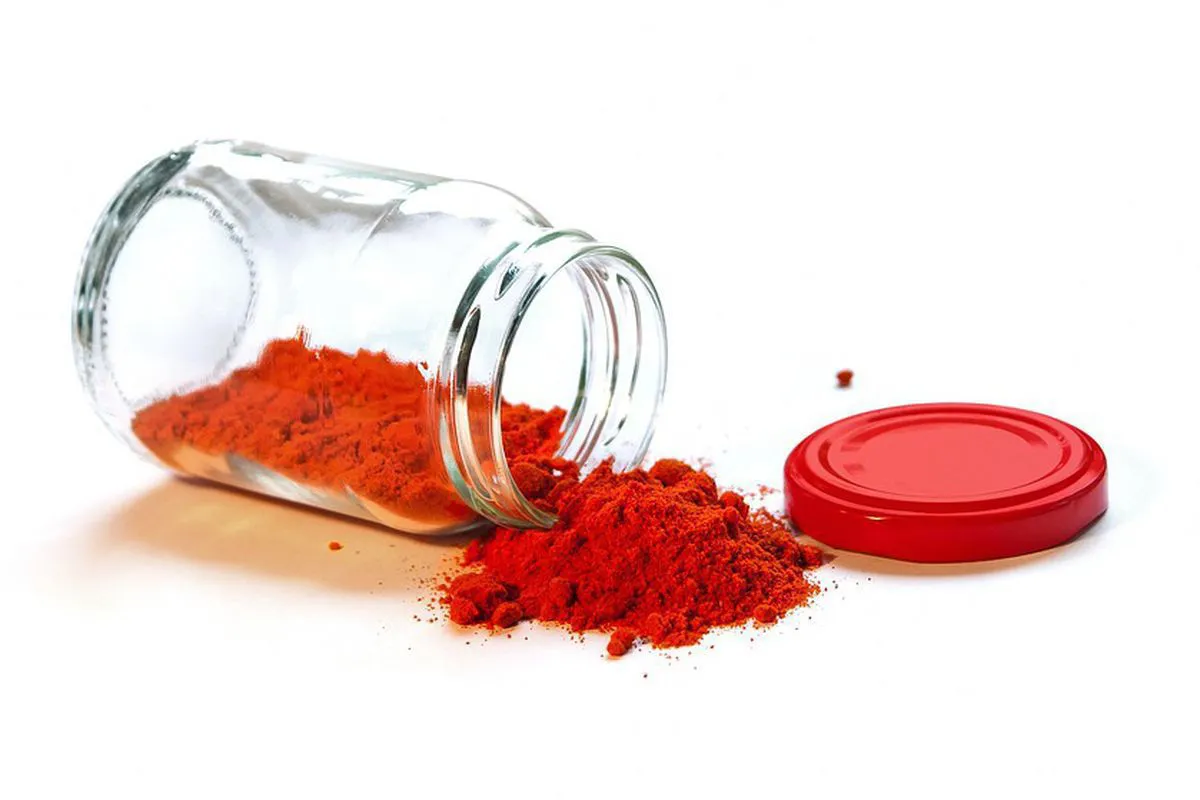What are the health benefits of paprika. Paprika has a positive effect on the human body.
Red ground paprika is in the kitchens of many people. But very few people know what this spice is useful for,
Ukraine , Ukraingate , 16 , February , 2022 | Health
Strengthens digestion
Paprika has significant stimulating properties that increase the secretion of gastric juice, regulate appetite and thus reduce cravings for junk food. By allowing the salivary glands to digest food quickly, paprika helps prevent obesity and diabetes. In addition, it facilitates the movement of processed and unprocessed food particles through the intestine, reducing the likelihood of constipation. Paprika also reduces the likelihood of developing intestinal disorders such as inflammatory bowel disease and ulcerative colitis.
Strengthens protective functions
Vitamin C, a powerful antioxidant, is present in paprika in significant quantities and plays a key role in ensuring optimal immunity in the body. Paprika also contains the antioxidant rutin, which by its nature has anti-inflammatory and antimicrobial activity, which helps fight infections. Adding a small amount of paprika to main dishes, including soups and side dishes, can significantly strengthen the immune system, prevent coughs, colds and fevers.
Heals and improves the skin
Paprika is rich in the most important trace element zinc, which is involved in collagen synthesis and, therefore, promotes wound healing on damaged tissues. In addition, paprika contains powerful antioxidants, known as catechins, which are very effective in slowing down aging and rejuvenating skin texture. In addition, the presence of beta-carotene in this spice minimizes the appearance of deep lines, wrinkles and pigment spots, making the skin young, radiant and ultra-smooth.
Strengthens bones
Saturated with phosphorus necessary to maintain bone strength, paprika strengthens connective tissues in the body. Regular consumption of this spice in the diet also prevents serious bone diseases such as osteoporosis and arthritis. Phosphorus regulates the absorption of calcium in the tissues of the teeth, thereby strengthening the gums and jaw bones.
Protects nerves
Powerful antioxidants of plant origin contained in paprika, give brain cells some useful neuroprotective properties. Phenolic compounds of the anthocyanin class protect neurons – specialized brain cells – from damage and any injury. Thus, paprika is very useful in reducing the risk of neurodegenerative disorders such as Alzheimer’s disease.
Strengthens the heart
Due to the large amount of vitamin E and omega-3 fatty acids, paprika significantly reduces the level of “bad” cholesterol and triglycerides in the bloodstream. In addition, it can also lower blood pressure and relieve tension in the arteries, thus preventing serious cardiovascular diseases such as atherosclerosis. This is influenced by the antioxidant anthocyanins.
Prevents cancer
The polyphenolic class of antioxidants in paprika is extremely useful in preventing cancer. These compounds remove harmful free radicals from healthy cells of vital organs such as kidneys, liver and bones, thereby enhancing the body’s valuable cytoprotective properties. This, in turn, prevents healthy cells from entering the uncontrolled mechanism of division, causing cancer.
Promotes visual function
Paprika is rich in phytonutrients that are associated with vitamin A, known as carotenoids, and therefore, adding just one pinch of this spice to salads, soups and meat dishes gives huge benefits to eye health. The content of lutein, zeaxanthin and beta-carotene in this spice improves the work of the optic nerve, retina, cornea, lens and other organs of the eye, as well as reduces the risk of age-related macular degeneration, glaucoma and cataracts.
Improves blood circulation
Paprika, which contains a lot of iron – a vital trace element necessary for the formation of new, healthy red blood cells, provides transport of oxygen and essential nutrients to other organs of the body. In addition, it also provides the body with a large amount of vitamin C, which enhances the absorption of iron by tissues and thus effectively prevents anemia, which causes severe fatigue, lethargy and deteriorating mental health.
Treats insomnia
Paprika contains high levels of vitamin B6 or pyridoxine, which is a powerful nutrient that has a positive effect on neurological functions and regulates brain activity. It helps in the synthesis of the sleep hormone melatonin, thereby relieving insomnia and promoting a peaceful night’s rest. Adding a pinch of paprika to main dishes for dinner helps maintain the neurotransmitter activity of serotonin, which lifts mood, relieves stress and depression.
Source : Ukrgate






